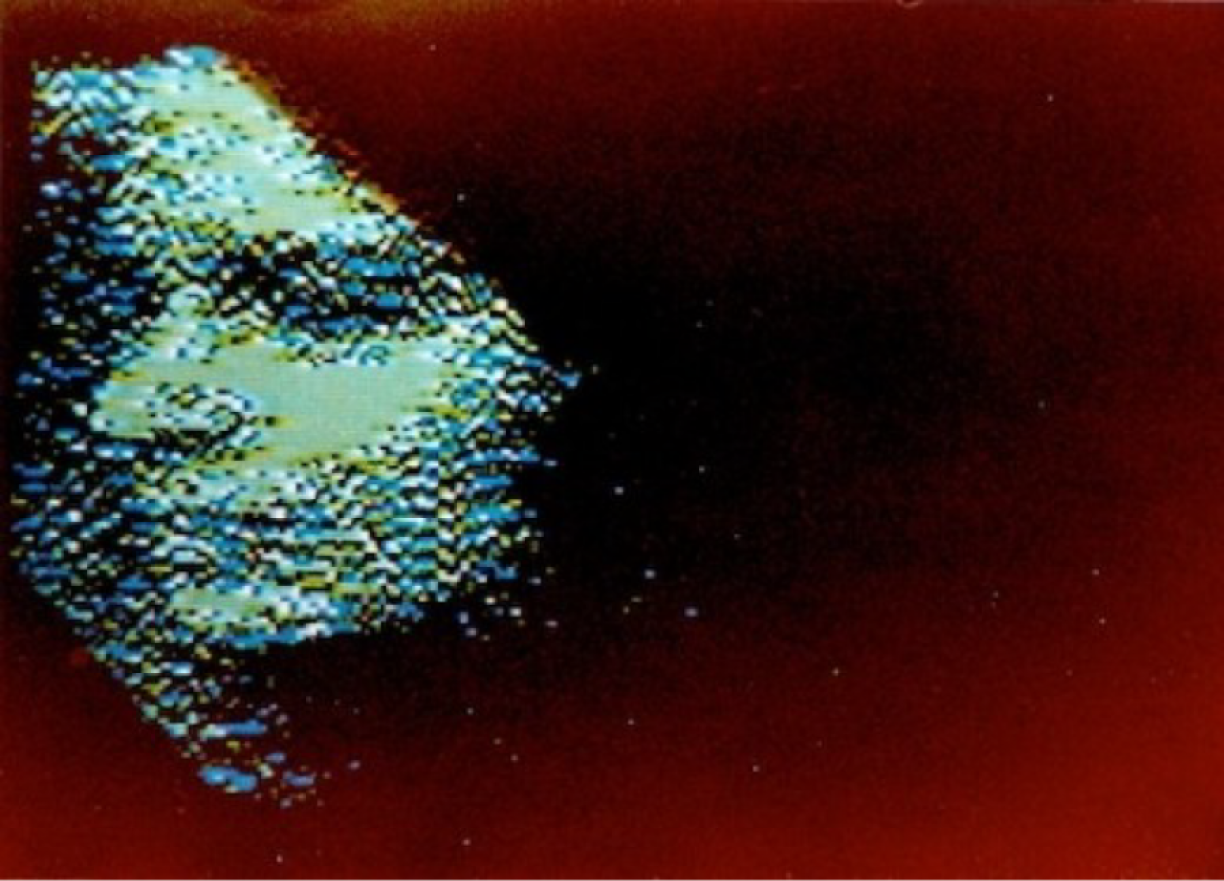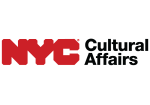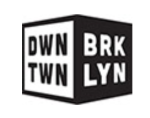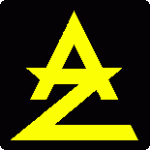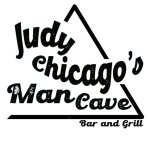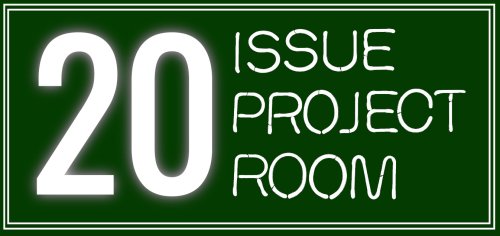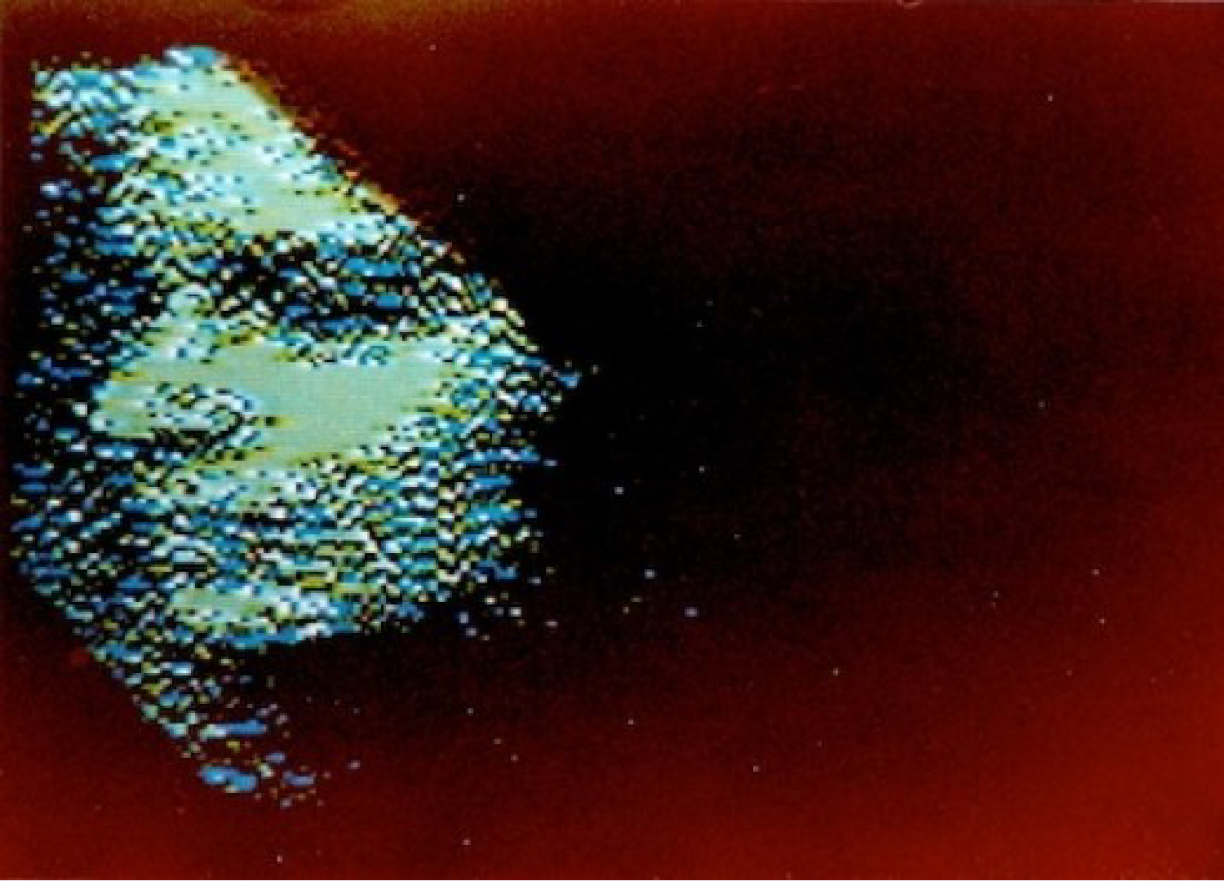At 8pm and 9pm on both Friday, October 13th & Saturday, October 14th ISSUE celebrates its 20th Anniversary with a restaging of the installation of electronic music pioneer Laurie Spiegel’s piece A Harmonic Algorithm 2020, coordinated in collaboration with composer and artist Seth Cluett. A work first created through a computer algorithm coded by Spiegel, in September, 2020 the piece was spatialized and recorded as a 360 degree video presentation - which can be experienced in ISSUE’s archive. This was recorded at ISSUE’s 22 Boerum Pl. theater during the COVID-19 pandemic by Cluett, Artist-in-Residence at NOKIA Bell Labs. Working in dialogue with Spiegel on the multi-channel loudspeaker array at Bell Labs, Cluett restages a new diffusion of the work that takes advantage of the unique acoustics of the Boerum Pl. theater. The spatialized self-playing presentation will run for two evenings.
Between Friday, Oct 13th and Saturday, Nov 4th, ISSUE invites audiences to experience numerous programs including new commissions and restaging of programs specifically designed for a limited capacity environment of 74 people. This includes A Harmonic Algorithm 2020, which was originally scheduled to be presented to audiences in late March 2020. After being postponed due to the onset of the COVID-19 pandemic, ISSUE staged the work as an installation in Fall 2020, accessed by a limited number of ISSUE members. This installation was recorded and made accessible online, as a 360 degree digital presentation. Now being made available to the wider community to experience in person, ISSUE is thrilled to be presenting Spiegel’s work as part of the 20th Anniversary Season.
Spiegel’s A Harmonic Algorithm 2020 was a new take on her piece, A Harmonic Algorithm 2011, which was the third incarnation of a series of algorithms that Spiegel first coded on her Apple II computer around 1980. In her program notes for the piece, she noted, “At Bell Labs, it had occurred to me [...] that if a composer creates individual ‘pieces of music’ that at the end of his/her life there will only be a finite number of musical works by that composer. If instead of composing individual finite length works, a composer could encode in computer software their personal compositional methods, preferences, processes and ways of making musical decisions, and somehow their aesthetic sensibility too, then they could go on composing and generating new music long after the biological human had ceased to exist. This particular algorithm is a synthesis of my own musical preferences and extensive analysis of Bach's Chorales, in homage to his ultimate ability to merge emotion and logic.”
During these presentations Laurie Berg’s (Sports) Bar-In-Residence will be activated as well as a lobby installation by Eva Davidova: Vinson and Catherine in the Garden, a series of augmented reality prints.
This Fall marks the 20th Anniversary of ISSUE and will be celebrated with a series of commissioned programs, orbiting around our annual Gala and affiliated Benefit events. During the Anniversary celebration, between phases of renovation, ISSUE returns to our 22 Boerum Pl. theater for a special series of twenty limited-capacity events. Featuring artists from across our history as well as new projects, these gatherings - including our 20th Anniversary Gala - present an opportunity to celebrate and support ISSUE as we continue an ambitious calendar of programming. Join us in recognizing this important milestone in our history.
ISSUE Project Room Members tickets are half price and members retain exclusive access to all limited-capacity events until sold out.
Composer Laurie Spiegel's music draws on her classical training, pre-classical lute, and folk guitar and banjo roots; however, she is also a computer programmer, software designer, visual and video artist, and a published theorist. She is known for her pioneering work with several early electronic and computer music systems, focusing largely on interactive software that uses algorithmic logic to supplement and extend human abilities, and on the aesthetics of musical structure and cognitive process. Spiegel's visual works—computer graphics, video, drawings, and photography—have been exhibited in the United States, Europe, and Japan. She has directed computer and electronic music studios and taught composition at Cooper Union and at New York University, where she founded its first computer music studio. Her realization of Johannes Kepler's Harmony of the Planets was sent into space as the opening cut of the Voyager Spacecraft's record Sounds of Earth (1977). Spiegel's recorded works have been available on 1750 Arch, Capriccio, Philo, Unseen Worlds, and other labels. Her computer software for music, such as Music Mouse—An Intelligent Instrument (1986), has been published for Amiga, Atari, and Macintosh computers. Spiegel has received fellowships and grants from the New York State Council on the Arts, ASCAP, and the Experimental Television Lab at WNET, among others. She is a freelance composer for film, dance, and other media, as well as a writer, software developer, visual artist, and a consultant in computer music, audio software design, and in other areas of information technology. Spiegel's studies include an A.B. from Shimer College and an M.A. from Brooklyn College, and additional studies at Oxford and Juilliard.
Seth Cluett is a composer and visual artist who creates work that explores everyday actions at extreme magnification, examines minutiae by amplifying impossible tasks, and tries to understand the working of memory in forms that rethink the role of the senses in an increasingly technologized society. Ranging from photography and drawing to installation, concert music, and critical writing, his “subtle…seductive, immersive” (Artforum) sound work has been characterized as “rigorously focused and full of detail” (e/i) and “dramatic, powerful, and at one with nature” (The Wire). The recipient of grants from Foundation for Contemporary Arts Emergency Fund and Meet the Composer, his work has been presented internationally at venues such as The Whitney Museum, MoMA/PS1, Moving Image Art Fair, CONTEXT Art Miami, GRM, and STEIM. His concert work has been commissioned by ensembles ranging from the Hong Kong Sinfonietta and the International Contemporary Ensemble to So Percussion, Catch Guitar Quartet, and Clogs and is documented on Line, Sedimental, Notice, and Winds Measure recordings. Cluett is on the faculty of the Department of Music and the Assistant Director of the Computer Music Center and Sound Art Program at Columbia University and is Artist-in-Residence with Experiments in Art and Technology at Nokia Bell Labs where he maintains a studio and is active in research on virtual and augmented reality acoustics and multi-sensory communication.
Self-portrait, c. 1981 by Laurie Spiegel

